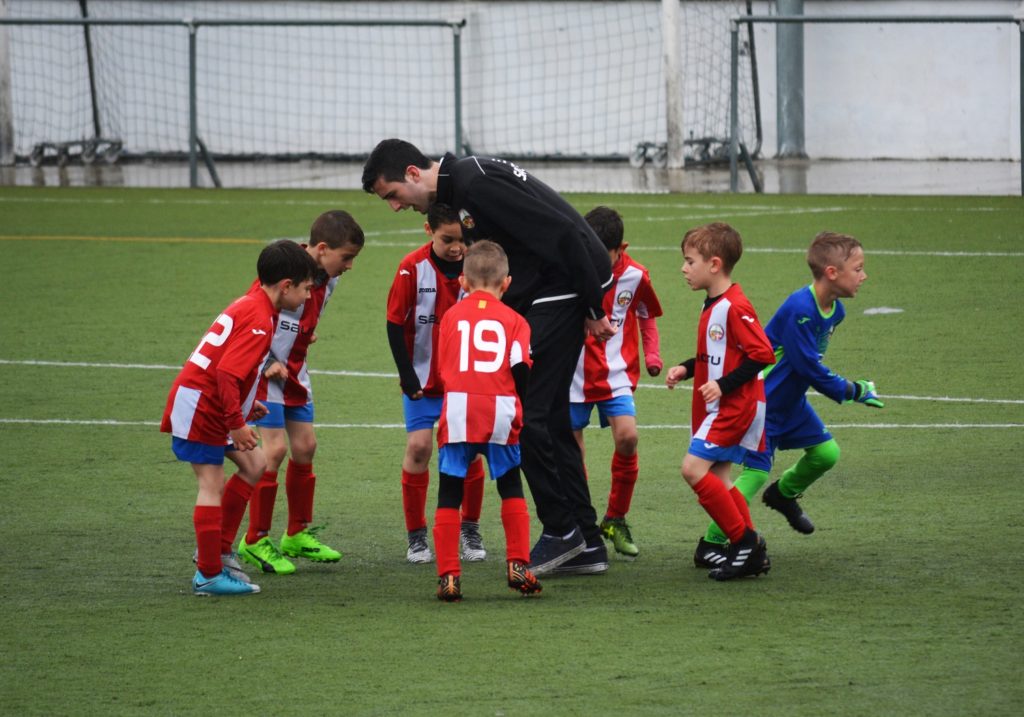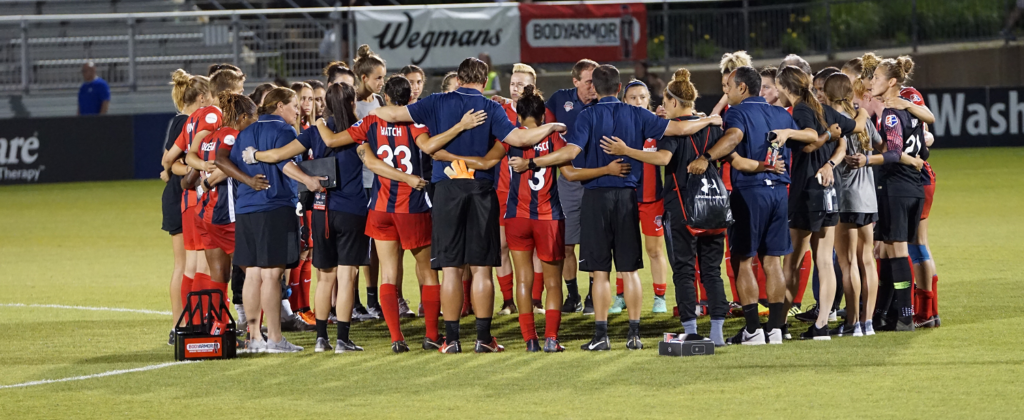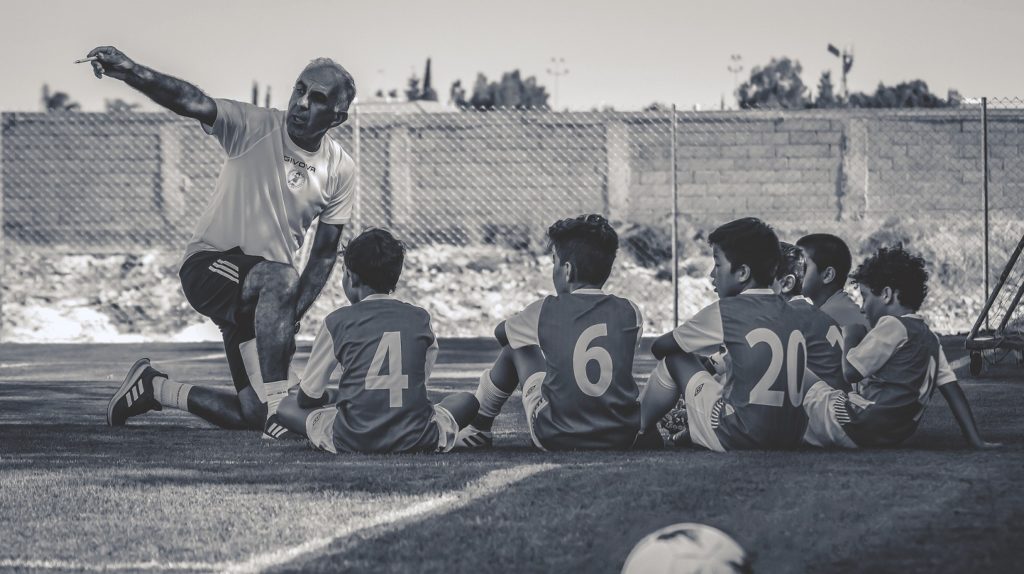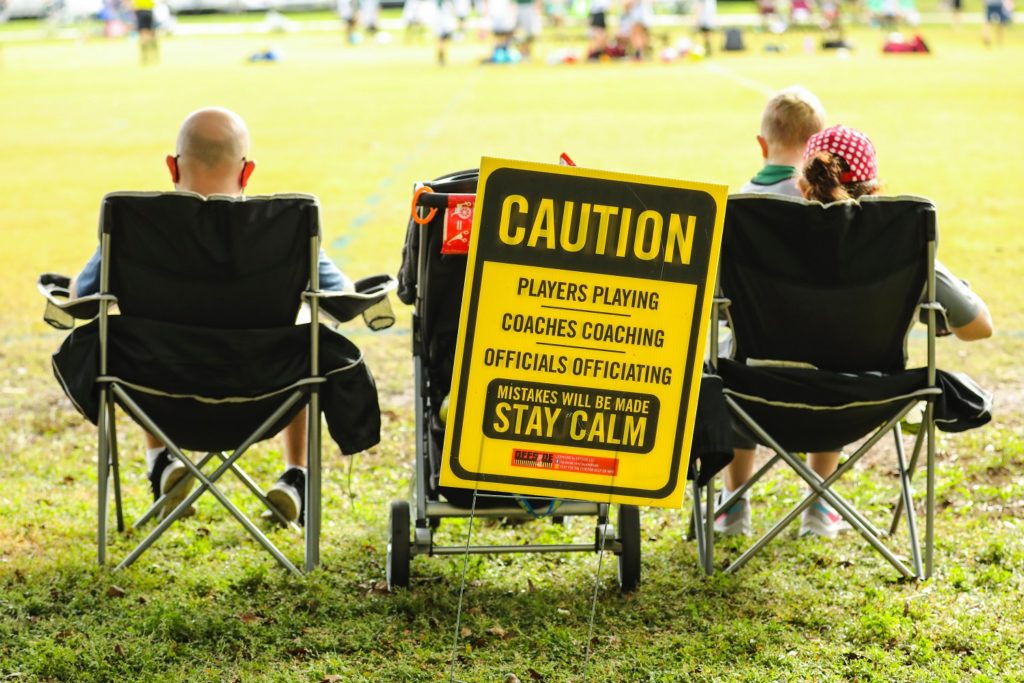Being a Good Soccer Coach is Not a Given
Every year, new people take up the whistle and clipboard to become a soccer coach, but being a good soccer coach doesn’t come automatically.
Without a doubt, many of these new coaches are feeling uneasy about it, worried that they’re not going to live up to their own expectations or, worse, let their new players down.
If we are talking to you, coach, we’re happy to let you know that the truth is most of what makes a good coach is applicable across sports and life.
Our focus is going to be on soccer coaches, but we know these principles hold across every type of field, court, and arena. And they’re actionable by everyone. Whether you’re an ex-soccer star looking to develop the next generation of talent or trying to ensure your child’s team has a coach for their season.
And that happens to be a great place to start.
1. In Coaching, It Doesn’t Matter What You Did Or Didn’t Do.
Do not buy into the myth that great players make great soccer coaches. In fact, most of the time, great players come up short in coaching.
A recent modern example that comes to mind is Chelsea’s Frank Lampard. Dubbed “Super Frank” during his playing days, he played for Chelsea for over ten years, and in that time was named the Premier League Player of the Decade.
You would think that means he knows, at the very least, how to be a soccer coach at the Premier League Level, right?
Well, Lampard’s tenure as Chelsea’s manager lasted less than two years, and he was sacked after losing five of his last eight games at the helm.
At best, an abundance of high-level personal experience in the sport you’re coaching lends you some authenticity to your players.
At worst, it’s an insulator that keeps you from connecting with your players at their level.
Stop Wasting So Much Time Searching For
What To Do At Your Next Practice Session.
Sign Up For The Soccer Handbook Full Season Coaching Plans!
2. Their Level is More Important than Your Level.

Connecting with your players at their level is how you’re going to be the best soccer coach for your squad. Often first-time coaches are eager to impart all their knowledge right away, but this might not be the best approach for your players.
Consider that many of the players drawn to soccer likely learn best in motion. Therefore, consider starting with the most fun of fundamentals and slowly introducing new concepts that your players can try to incorporate naturally into live sessions.
Coaching the youngest of the young? Start with something as simple as the following question:
How do you win a soccer game?
It might sound like a trick question, but the answer is simple:
Score more goals than the other team.
If your team needs to start there: let them! You’ll be off to a great start if you end up with a young squad full of aggressive goal-hungry players confident in their shooting.
That advice goes for you too, coach. Don’t get wrapped up in the infinite complexities of how to coach soccer if that’s not where you are. Start simple, and build up, and you’ll appreciate your growth, even more, that way.
3. The Whole Team Matters.

It’s easy for coaches to get wrapped up in their starting line-ups and in their stars. Looking at their notes and thinking about which players have shown real class for their age and dreaming of their most powerful squads— we get it!
The problem is if you have a squad of eleven stars, and everyone else looks like it’s their first day out there, then who are the stars going to practice against?
You’ll have much better results teaching soccer to a group of twenty kids who are engaged and valued; instead of ten starters and ten afterthoughts.
The least developed players on your team are the ones that need the most attention. Improving those players will improve competition throughout the entire team, causing everyone to improve in a real-life ripple effect.
A winning team always values its least developed players and encourages their growth. This especially holds true in club programs in which this philosophy will result in recruiting more players and help the club develop into a fully-fledged multi-level outfit.
While unfortunately not as common in North America, it’s common for German, English, Spanish, and Italian clubs to have youth programs with 3 or even 4 playable squads.
For a better understanding, here’s a quick breakdown of potential sides within a single major youth soccer club program:
- A Squad: These are considered your starters. What do you consider to be your best players for their age bracket?
- B Squad: This team would have a majority of first-substitute options or even A-Side players working back into form after an extended break due to injury or fitness issues.
- C Squad: This team would be a majority of reserves, or more commonly, practice squad players. Players are showing promise from D Squad or Players who have come up through the program but have yet to break through.
- D Squad: This would be a mix of reserves and potentially promising players from a younger league that have been advanced due to their skill sets.
What’s important is that all of the players across these sides are taught to respect and value each other. It’s important to eliminate any superiority complex and remind everyone they need someone to practice against.
Need Help With Planning Your Practice Sessions?
Sign Up For The Soccer Handbook Full Season Coaching Plans!
4. Maximize Practice Effectiveness by Minimizing Your Talking.

Wanting to talk is part of being a coach. You’re the leader, you’ve got the picture, and you have the intricate details. You have a lot to say!
But that doesn’t mean you should. In fact, you should try to limit the amount of time you spend with the entire team held up for lectures.
This can be hard to do, but learning how to be concise in team communications will save you time and keep your players moving through practice. If you need help, consider using a stopwatch or smartwatch timer to keep yourself honest.
It will also help you keep consistent, another crucial element in how to be a good coach.
5. Your Consistency Will Set the Example.
It’s no secret the human brain craves consistency.
Human brains have developed to recognize and understand patterns over hundreds of years, and while you can think of that as patterns like on a jersey, we’re really talking about patterns of behavior.
Consistency is an important human behavior discipline and a fundamental element of what makes a good soccer coach.
In fact, developing consistency with your team will help save you on the inevitable day that life gets in the way of your ability to practice on time. They’ll know how to warm up and know what they have to do to get practice started.
That kind of consistency will impart on players, and with that consistency comes mutual respect.
But your respect has to extend beyond your players.
6. Never Forget It’s Not Just Coaches and Players Out There.

Shortages seem to be the way of the world, and youth sports referees are no exception. Soccer games that normally require 3 referees often rely on 2 or even 1, due to most sports officials quitting or retiring in the last several years.
“I talked to the two refs who officiated at my son’s game to ask them for their parent horror stories. They said coaches are the bigger problem.”
– From the Washington Post.
This cannot be the case, and you cannot afford it. You will lose an entire season for your players.
Be determined not to make hysterics and abuse part of your coaching style. If you cannot do that, do not coach. You will hurt the players influenced by your coaching style, and you will hurt the club and league as a whole.
If you do have some “challenging parents” and need to have a conversation about the reality of the situation with your team’s parents. Just do it.
To be clear: Parental concerns are valid, be transparent, patient, and willing to hear them out.
After all, parents invest significant time and money in ensuring their child makes it to practice, and games, has the necessary gear, is fed on tournament days, etc.
What is not valid is parents coaching from the sideline, refereeing from the sideline, or jeopardizing entire seasons from hurtling abuse.
Keep it simple: unless they’re willing to be out there refereeing themselves, they have no business yelling.
You should be an example for your players and their parents.
7. There’s A Lot to Know.
Whether you’re feeling the nerves of the first upcoming practice of your coaching career, you’re a ten-season veteran, or somewhere in-between, there will always be a lot to know when it comes to how to be a soccer coach.
Here’s a quick list of resources you can keep handy by bookmarking this page:
- Fundamental Youth Dribbling Drills
- Basic Soccer Skills
- Soccer Field Dimensions (U6 Through International)
Don’t be afraid to keep it simple. Start with where you are, look for resources, and remember that what you do will always have more of an impact than you can know.
You got this coach!
Need help planning your training sessions? Check out our Full Season Coaching Plans.





